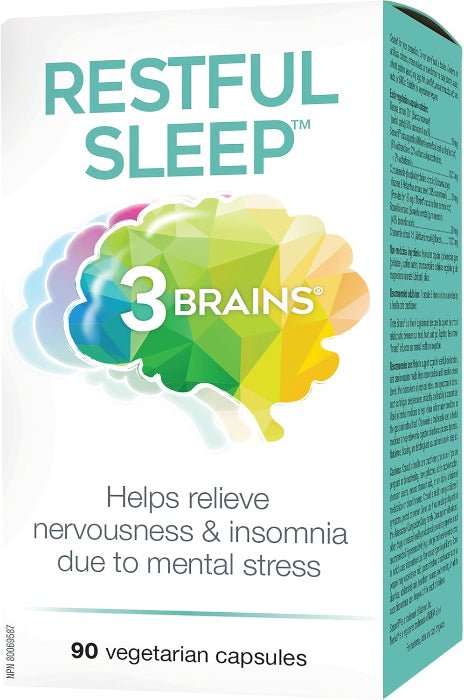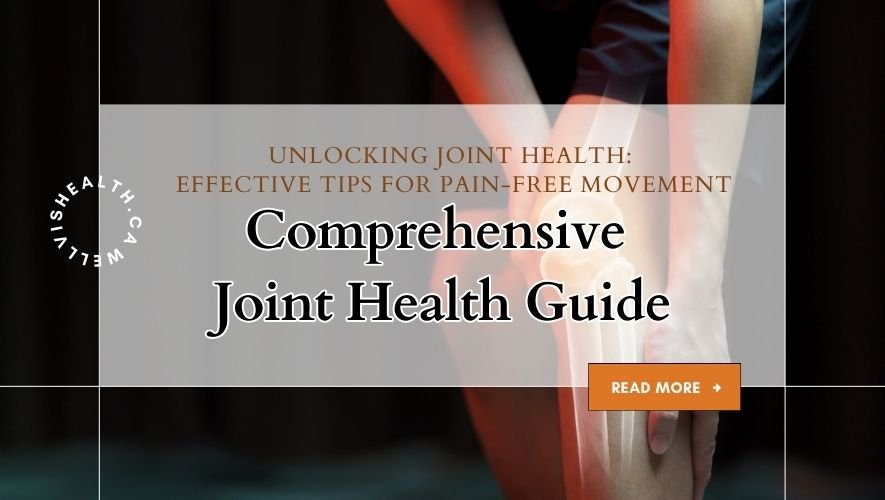常見問題解答
- 最適合初學者的運動補充劑是什麼?
- 運動補充劑可以幫助減肥嗎?
- 有合成補充劑的天然替代品嗎?
- 使用運動補充劑需要多長時間才能看到效果?
- 服用運動補充品有年齡限制嗎?
鍛鍊補充劑在尋求提高表現和表現的健身愛好者和運動員中越來越受歡迎。這些補充劑包含多種產品,旨在支持運動和訓練方案的各個方面。從蛋白粉到運動前配方奶粉,市場提供了多種選擇來滿足不同的健身目標和偏好。
運動補充劑的類型
有多種類型的運動補充劑可供選擇,每種都有特定的目的來幫助健身。蛋白粉可能是最著名的,它提供了方便的蛋白質來源來支持肌肉生長和修復。肌酸補充劑也因其在劇烈運動期間增強力量和力量的能力而被廣泛使用。此外,含有咖啡因和β-丙氨酸等成分的運動前補充劑很受歡迎,可以在訓練前增強能量和注意力。
使用運動補充劑的好處
使用運動補充劑可以為希望優化日常運動的個人帶來多種好處。首先,這些補充劑有助於改善肌肉生長和恢復,從而加快進步並減少運動後的酸痛。其次,許多補充劑含有增強能量水平和表現的成分,使用戶能夠在訓練期間更加努力並取得更多成績。最後,運動補充劑提供了一種增加營養攝取的便捷方法,特別是對於那些生活方式忙碌或有特定飲食要求的人來說。
服用運動補充劑之前的注意事項
在將運動補充劑納入健身方案之前,必須考慮幾個因素。首先,諮詢醫療保健專業人員或營養師可以提供個人化指導並確保與個人健康狀況或藥物的兼容性。此外,個人應該意識到他們可能對補充劑中常見的某些成分有任何過敏或不耐受。最後,了解正確的劑量和使用說明對於最大限度地發揮補充劑的益處並同時最大限度地減少任何潛在風險至關重要。
鍛鍊補充劑中常見的成分
鍛鍊補充劑含有多種成分,每種成分在支持運動表現和恢復方面都有特定的作用。蛋白質補充劑通常包括乳清、酪蛋白或植物蛋白等來源,它們提供肌肉修復和生長所需的必需胺基酸。一水肌酸是另一種常見成分,因其能夠增加 ATP 產量而聞名,從而提高力量和功率輸出。此外,許多運動前補充劑含有咖啡因和其他興奮劑,以提高訓練期間的能量水平和注意力,而其他補充劑可能含有維生素和礦物質,以支持整體健康和福祉。
圍繞運動補充劑的安全問題
雖然運動補充劑如果使用得當可以帶來顯著的好處,但食用它們也存在潛在的風險。過量攝取某些補充劑(例如蛋白質或肌酸)可能會對腎臟和肝臟造成壓力,尤其是對於已有健康狀況的個體。此外,一些補充劑可能會與藥物相互作用或加劇潛在的醫療問題,這凸顯了在使用前諮詢醫療保健專業人員的重要性。此外,補充劑行業缺乏監管意味著並非所有產品都經過嚴格的安全性和功效測試,這使得消費者必須仔細研究品牌和產品。
如何選擇合適的運動補充劑
市面上有無數的選擇,選擇合適的運動補充劑可能會讓人不知所措。為了做出明智的決定,個人應該研究以其品質和透明度而聞名的知名品牌。閱讀產品標籤和客戶評論可以提供有關補充劑成分和功效的寶貴見解。此外,考慮個人的健身目標和飲食偏好可以幫助縮小選擇範圍並確保與個人的生活方式和需求相容。
最大限度提高鍛鍊補充劑功效的技巧
雖然運動補充劑可能是有益的,但不應依賴它們來取代適當的營養和訓練。為了最大限度地發揮其功效,必須將補充劑與富含天然食物和營養素的均衡飲食搭配。保持水分也很重要,因為許多補充劑會增加運動過程中身體對水的需求。此外,將定期運動和充足的休息納入日常生活對於長期成果並最大程度地減少受傷或倦怠的風險至關重要。
現實生活中的成功故事
透過將運動補充劑納入日常生活中,無數人的健康和表現得到了顯著改善。無論是在力量或耐力方面實現個人最佳,還是在身體組成上經歷巨大轉變,這些成功故事都可以為其他人的健身之旅提供靈感。透過將奉獻精神、努力工作和補充劑的策略性使用相結合,許多人已經能夠超越他們的目標並釋放他們的全部潛力。
揭穿關於鍛煉補充劑的常見神話
儘管鍛煉補充劑廣受歡迎,但它經常受到誤解和誤解。一個常見的誤解是,補充劑是實現健身目標所必需的,但實際上,它們的目的是補充均衡的飲食和訓練計劃。此外,人們對安全和合法性的擔憂也隨之而來。
前 5 名鍛鍊前:
-
咖啡因:咖啡因是一種經過充分研究的強效助劑,可以增強耐力表現、提高警覺性並減少運動過程中的用力感。它透過刺激中樞神經系統來發揮作用,從而提高注意力和能量水平。
-
一水肌酸:肌酸是研究最廣泛的補充劑之一,以其增強力量、功率和肌肉質量的能力而聞名。透過補充 ATP 儲備,肌酸可增強無氧性能,使其特別有利於舉重和短跑等高強度活動。
-
β-丙氨酸: β-丙氨酸是一種氨基酸,可與組氨酸結合形成肌肽,肌肽是一種有助於緩衝劇烈運動期間肌肉中乳酸積累的化合物。補充 β-丙氨酸已被證明可以提高肌肉耐力並延緩疲勞,尤其是在持續 1-4 分鐘的活動中。
-
L-精胺酸: L-精胺酸是一氧化氮的前驅物,一氧化氮是一種透過擴張血管來調節血流的分子。透過增加一氧化氮水平,L-精胺酸補充劑可以增強流向肌肉的血液,從而改善氧氣和營養物質的輸送,以及更好的運動表現和恢復。
-
支鏈胺基酸 (BCAA): BCAA,包括亮氨酸、異亮氨酸和纈氨酸,在運動過程中的肌肉蛋白質合成和能量產生中發揮著至關重要的作用。在運動前補充支鏈胺基酸有助於防止肌肉分解、減少疲勞並促進肌肉恢復,尤其是在長時間或禁食的訓練期間。
前 5 名運動後:
-
蛋白質:運動後攝取蛋白質對於透過提供蛋白質合成所需的氨基酸來促進肌肉修復和生長至關重要。尤其是乳清蛋白,它可以快速消化並富含必需氨基酸,使其成為運動後補充的理想選擇,以最大限度地提高肌肉恢復和適應能力。
-
碳水化合物:運動後補充肝醣儲備對於恢復能量水平和支持恢復至關重要。運動後攝取碳水化合物有助於刺激胰島素釋放,從而促進肝醣補充並促進肌肉蛋白質合成。運動後的最佳碳水化合物攝取量取決於運動強度、持續時間和個人目標等因素。
-
一水肌酸:雖然肌酸通常與運動前的補充有關,但它的好處也延伸到運動後的恢復。透過增加肌內肌酸儲存,運動後補充肌酸可以加速肌肉肝醣再合成並促進肌肉恢復,尤其是與碳水化合物和蛋白質結合使用時。
-
L-麩醯胺酸: 麩醯胺酸是體內最豐富的胺基酸,在免疫功能和肌肉恢復中起著至關重要的作用。在劇烈運動期間,麩醯胺酸水平可能會耗盡,導致免疫功能受損和恢復延遲。運動後補充 L-麩醯胺酸可以幫助補充肌肉內的麩醯胺酸儲備,減少肌肉酸痛,並支持免疫健康。
-
抗氧化劑:劇烈運動會產生氧化應激,導致自由基的產生,損害細胞和組織。運動後攝取抗氧化劑,如維生素 C 和 E、多酚和黃酮類化合物,可以幫助中和自由基、減少炎症,並透過促進細胞修復和再生來增強恢復。
這些營養素如果有策略地與均衡飲食和訓練計劃結合使用,可以幫助優化表現、支持恢復並最大限度地發揮運動的好處。與任何補充方案一樣,必須諮詢醫療保健專業人員或註冊營養師,以確定個人需求並確保安全性和有效性。
參考:
-
Goldstein, ER、Ziegenfuss, T.、Kalman, D.、Kreider, R.、Campbell, B.、Wilborn, C....和 Antonio, J. (2010)。國際運動營養學會的立場是:咖啡因與運動表現。國際運動營養學會雜誌,7(1), 5。
-
Kreider, RB、Kalman, DS、Antonio, J.、Ziegenfuss, TN、Wildman, R.、Collins, R....和 Lopez, HL (2017)。國際運動營養學會立場:肌酸補充劑在運動、運動和醫學方面的安全性和有效性。國際運動營養學會雜誌,14(1), 18。
-
Trexler, ET、Smith-Ryan, AE、Stout, JR、Hoffman, JR、Wilborn, CD、Sale, C.、... & Campbell, B. (2015)。國際運動營養學會立場立場:β-丙胺酸。國際運動營養學會雜誌,12(1), 30。
-
Alvares, TS、Conte-Junior, CA、Silva, JT、Paschoalin, VM 與 Lancha Junior, AH (2011)。補充 4 週後,L-精氨酸不會改善訓練有素的跑步者的生化和荷爾蒙反應。營養,27(2), 301-305。
-
Blomstrand, E.、Eliasson, J.、Karlsson, HK 與 Köhnke, R. (2006)。支鏈氨基酸在體育鍛煉後激活蛋白質合成中的關鍵酶。營養雜誌,136(1), 269S-273S。
-
Schoenfeld, BJ、Aragon, AA 與 Krieger, JW (2013)。蛋白質計時對肌肉力量和肥大的影響:薈萃分析。國際運動營養學會雜誌,10(1), 53。
-
Jentjens, R. 與 Jeukendrup, A. (2003)。短期恢復期間運動後肝醣合成的決定因素。運動醫學,33(2), 117-144。
-
本本,MG 和拉蒙特,HS (2005)。肌酸補充與運動表現:最新發現。運動醫學,35(2), 107-125。
-
Legault, Z.、Bagnall, N. 與 Kimmerly, DS (2015)。口服L-麩醯胺酸補充劑對單側膝關節伸展離心運動後肌肉力量恢復和酸痛的影響。國際運動營養和運動代謝雜誌,25(5), 417-426。
-
Powers, SK、Nelson, WB 與 Hudson, MB (2011)。運動引起的人類氧化壓力:原因和後果。自由基生物學與醫學,51(5), 942-950。










